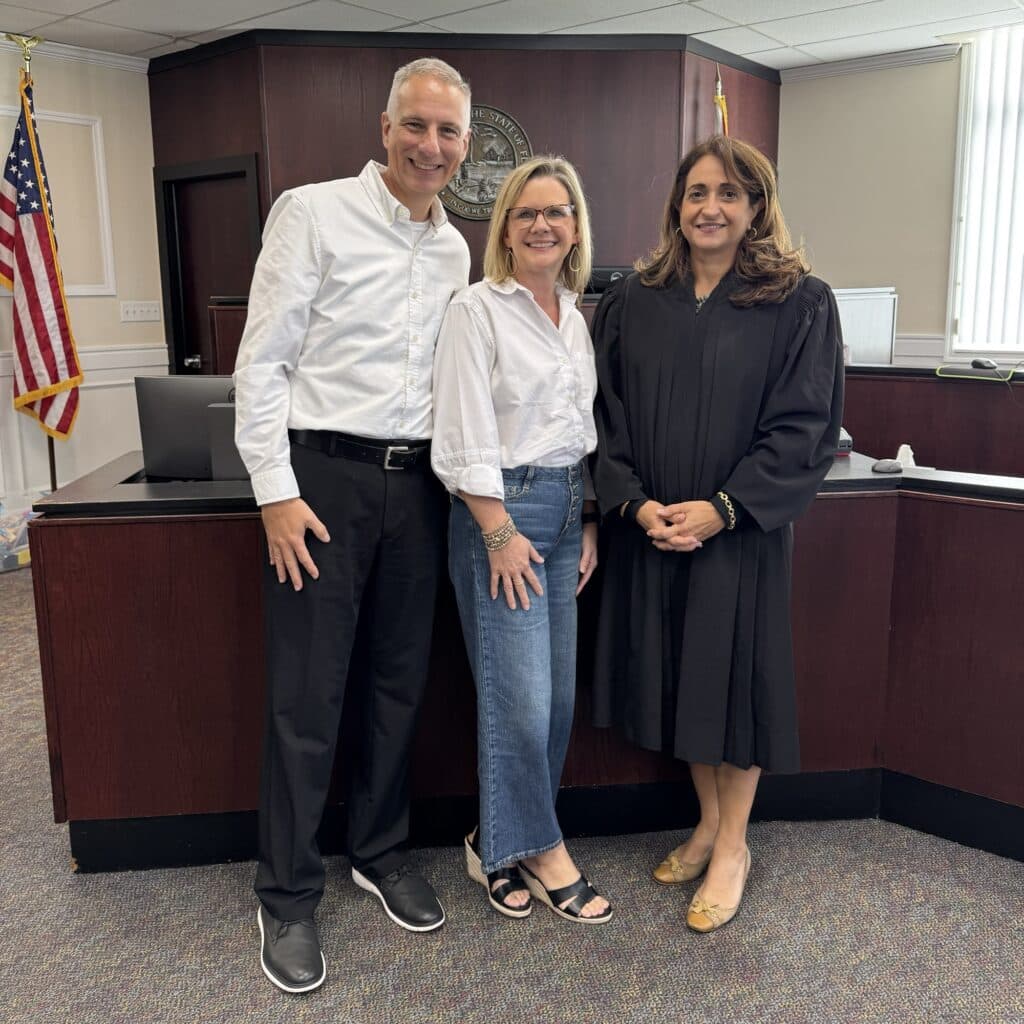During our years of fostering and adoption, Angie and I spent countless hours attending court proceedings. It was easy for us to form opinions about the judges presiding over these cases. Yet, we rarely paused to truly consider the immense challenges they face—the weighty decisions, the emotional toll, and the responsibility of ensuring the best outcome for each child. Looking back, we realize how much we underestimated the need to pray for them and their work. Today, we’re committed to lifting up those who serve on the bench, asking for wisdom, strength, and compassion as they navigate the complexities of child welfare cases.
Meet Judge Rose Marie Preddy
Angie and I recently had the privilege of sitting in Judge Preddy’s courtroom and engaging in a heartfelt conversation with her in her chambers. What we discovered was an incredible woman driven by a deep passion to make a meaningful impact in the lives of children from difficult backgrounds. Judge Preddy firmly believes that children and teens need healthy, trustworthy, and consistent adults to help them thrive and succeed.
One moment that resonated deeply with us was learning about a young boy who holds a special place in her heart—a boy who, coincidentally, was one of our first foster placements. Today, he is featured on the Florida Heart Gallery, waiting for a forever family to call his own.
We are profoundly grateful for people like Judge Preddy and the many individuals who work tirelessly to bring stability, health, and safety to children and families. Their dedication lights the path toward a brighter future for those in need.
Judge Rose Marie Karadsheh Preddy
The Challenges of being a Dependency Judge
Being a dependency judge who oversees cases involving children in foster care comes with a range of challenges, including:
1. High Emotional Toll
• Trauma Exposure: Dependency judges often deal with cases involving significant trauma, abuse, or neglect. Constant exposure to these stories can take a mental and emotional toll, leading to compassion fatigue or burnout.
• Difficult Decisions: Judges must make life-altering decisions regarding the placement of children, including whether to reunite them with their biological parents or terminate parental rights. These decisions weigh heavily due to their profound impact on the child’s future.
2. Balancing Competing Interests
• Child Safety vs. Family Reunification: Judges must balance the goal of maintaining family unity with the imperative to protect the child. Ensuring the best interest of the child often involves difficult trade-offs.
• Legal vs. Emotional Considerations: While there is a legal framework to follow, judges must also consider the emotional well-being of the child, which can sometimes be subjective or not adequately addressed by laws.
3. Caseload and Time Constraints
• Overwhelming Caseloads: Many dependency courts are overwhelmed by a high volume of cases, which can limit the time judges have to thoroughly review each case.
• Pressure for Timely Decisions: Judges need to make prompt decisions to minimize the time children spend in the uncertainty of temporary care, but quick decisions may compromise thorough assessment.
4. Resource Limitations
• Lack of Support Services: Judges often face challenges related to the availability of support services, such as mental health counseling, addiction treatment, or quality foster placements. This can make it harder to implement decisions that are in the best interest of the child.
• Limited Foster Homes: In many areas, there is a shortage of qualified foster families, making placement decisions more complex.
5. Systemic Challenges
• Interagency Coordination: Dependency judges rely on collaboration with child welfare agencies, social workers, and other stakeholders. Coordination issues can lead to delays or incomplete information.
• Policy and Legislative Changes: Judges must stay informed about changes in child welfare laws and policies, which can affect how cases are managed and decided.
6. Impact of Cultural and Socioeconomic Factors
• Understanding Diverse Backgrounds: Cases may involve families from varied cultural, ethnic, and socioeconomic backgrounds, requiring judges to be culturally competent to avoid biases and understand the unique challenges each family faces.
• Poverty vs. Neglect: Judges must distinguish between cases of neglect due to poverty and actual abuse or abandonment, as systemic inequality can sometimes play a role in how cases are presented and perceived.
Overall, dependency judges have the vital role of ensuring justice and safety for children while considering the rights and needs of all parties involved. This requires not only a firm understanding of the law but also empathy, resilience, and a commitment to advocating for children’s best interests amidst complex circumstances.


